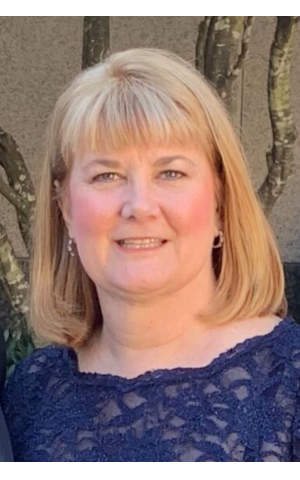Tackling Tough Topics with Your Senior Loved One
Lisa M. Reisman has been providing services to seniors in Atlanta for 14 years. Here she provides a detailed compass for making “best practices” decisions in hiring nurse aides.
After 37 years with the Atlanta Journal-Constitution and now with the AJT, , Jaffe’s focus is lifestyle, art, dining, fashion, and community events with emphasis on Jewish movers and shakers.

When my mother needed care, we made some bad choices when hiring nurse aides. The first one had three fake flat tires in five days. The next stole my mother’s charge cards, but we thankfully landed with a family – a mother and three daughters – who were reliable and saw us through until the very end.
Lisa M. Reisman, a certified nurse practitioner with a master’s degree in nursing, has been providing services to seniors in Atlanta for 14 years. Here she provides a detailed compass for making “best practices” decisions in hiring nurse aides.
“The greatest gift we give our loved ones is honoring their right to self-determination to the best of everyone’s ability,” Reisman noted.
Learn from her expertise on many practical topics such as homeowner’s insurance liability, how to ask specific interview questions, and what to pay hourly for care.
Jaffe: Do you do any special training for aides going into Jewish homes?

Reisman: Agencies develop person-centered care plans based on clients’ needs of activities in daily living, which include kashrut if a client choses. All caregivers are individually trained on the specific needs, taking into account functional and physical assessments, socio-economic environment, quality of life desired, religious observances, and goals of the care.
Jaffe: What can one expect to pay per hour for assistance?
Reisman: The Atlanta hourly rate ranges between $14 and $26, depending on hiring privately or contracting with an agency.
Jaffe: What are the pros and cons of working with an agency?
Reisman: The con of working with an agency is the higher cost, which translates to more protection. Agencies are regularly surveyed by the state and must maintain compliance with all state laws and accrediting bodies. Agencies conduct background screenings, provide training and oversight by a registered nurse, provide employee worker’s compensation insurance, liability insurance and bonding, employee health insurance and retirement plans, have a pool of caregivers to pick the most compatible caregiver for your loved one, and have other caregivers that can cover each other’s vacations and sick time. Agencies offer an increased level of oversight by periodically having a registered nurse assess your loved one for changes in condition and medication compliance.
Jaffe: How should a family choose a caregiver?
Reisman: This can be a daunting experience, but with guidance and research, the process is easier.
Jaffe: I have witnessed tension over the responsibility of “housework.”
Reisman: Light housekeeping can be defined differently. Agencies typically keep clean the areas used by the client. Housekeeping has to be done with both feet of the employee on the ground. Climbing ladders to clean fans is not a typical service.
Light housekeeping includes cleaning kitchen and bathroom countertops, washing dishes used by the client, mopping the kitchen floor, vacuuming the carpet and dusting in the areas of the home used by the client. It includes wiping out the shower/bathtub and cleaning the commode, changing the bedsheets and doing the contracted client’s laundry and meal preparation. Ironing of a specific garment may be included but typically does not include ALL ironing. Housekeeping duties requested by the client are agreed upon in advance and may include additional charges or referrals to housekeeping companies. If hiring privately, the level of housekeeping and specific duties should be agreed upon in advance and provided in writing to the caregiver to ensure expectations are clear.
Jaffe: What is a Certified Nurse Aide (CNA)?
Reisman: Certified Nurse Aides are trained in a program approved by the state, which includes education and competency verification in at least 20 different tasks ranging from personal care (bathing, grooming, oral care, shaving, ambulating) to nutrition (meal preparation around dietary needs) to skin care (repositioning and care for dry thin skin) to safety training (fall and infection risk mitigation).
Reisman’s Checklist for Home Care Decisions:
1. Level of care. Do they need help with bathing, grooming, meal prep, housekeeping, medication reminders, transportation, companionship, ambulation assistance, and/or toileting, to name a few? This assessment determines the level of certification or training needed.
2. Costs of home care versus facility care. Understand how those costs will be covered. Care costs money and the financial reality of that care can be shocking. Families underestimate the emotional commitment of caregiving and the added stress of the financial commitment can be overwhelming.
3. All stakeholders should be part of the care decisions: Your loved one that needs care, their spouse, siblings, friends, and other relatives. Everyone should be honest about their level of involvement/commitment, whether it is time, money, food, companionship or transportation.
4. Agency or private care: If home care is chosen, next is deciding between agency and private care. An agency will take your assessment data, complete their own assessment and develop a care plan with explicit instructions of what, how and when the caregiver is to work.
If you are hiring privately, the stakeholders will need to develop a detailed list of expectations for the caregiver (job description) and establish clear salary/wage parameters, including whose responsibility it is for payroll taxes (1099 versus W2).
Review the homeowner’s insurance policy regarding coverage of injuries in the home of hired employees. Do your research, whether it is for a privately hired caregiver or an agency. Talk to people who have used the caregiver or agency in the past. Beware of online reviews, as disgruntled consumers have a tendency to write more reviews than happy consumers.
5. The interview: Your loved one should be involved, if possible. Find out what similar work the caregiver has done previously. Gather work history. Ask what types of personalities they do and do not work well with. If hiring privately, ask what they will and “will not do.” Ask what drew them to caregiving and what goals they have in working for your loved one and long term for themselves. Ask about their willingness to have a background screen and what certifications they hold. Be clear on your expectations and be honest about any diagnoses, abilities or disabilities, and/or inappropriate behaviors of the loved one.
6. The last step is decision-making. Ask your loved one for input on their choice. Once you find someone who is experienced, qualified, has a clean background check and comes recommended, you still have to make a leap of faith. Nothing is guaranteed, but at the same time, nothing is in stone. You can change caregivers and agencies if it is not working out. Arm yourself with knowledge, do the research, and be honest with everyone involved. Caregivers are humans, not robots. Most are kind, compassionate, and really want the best for your loved one.
Not every caregiver is the right fit, but that doesn’t make them the wrong for someone else.
Reisman operates Complete Care at Home LLC. For more information, contact her at 770-551 9533.



comments